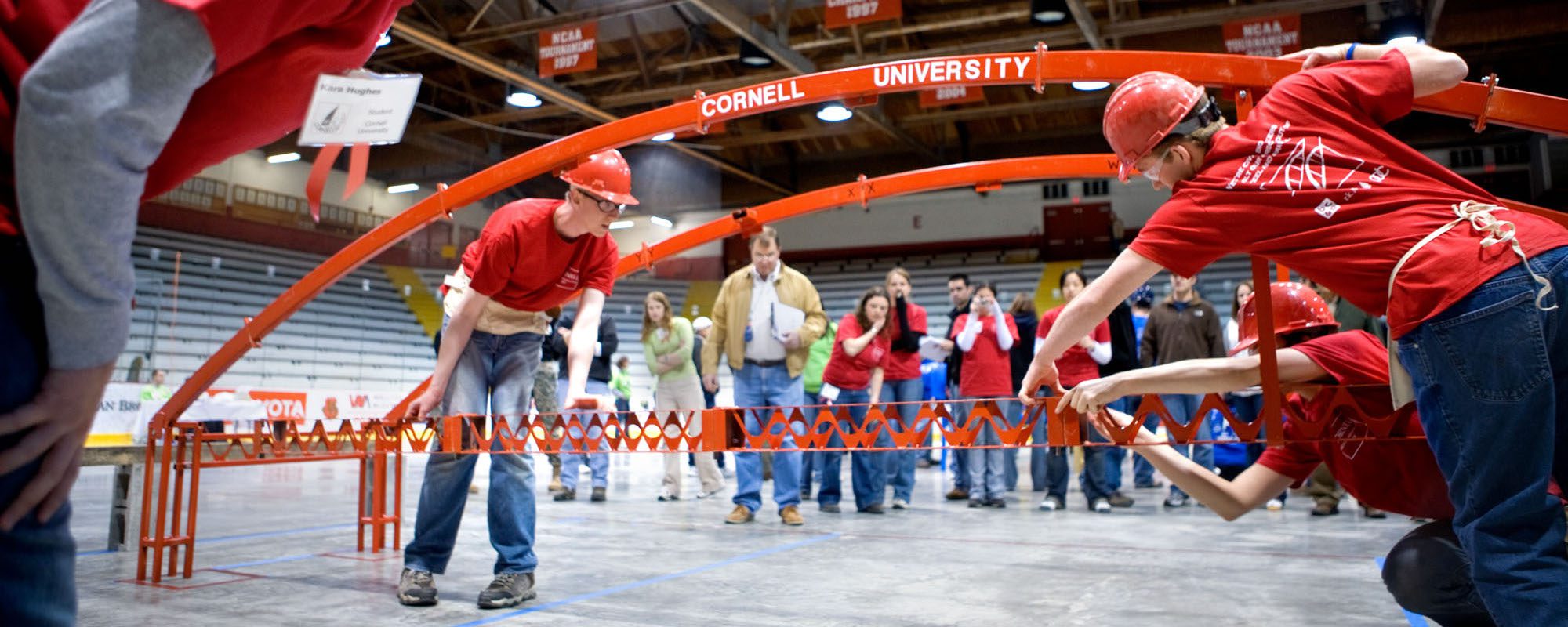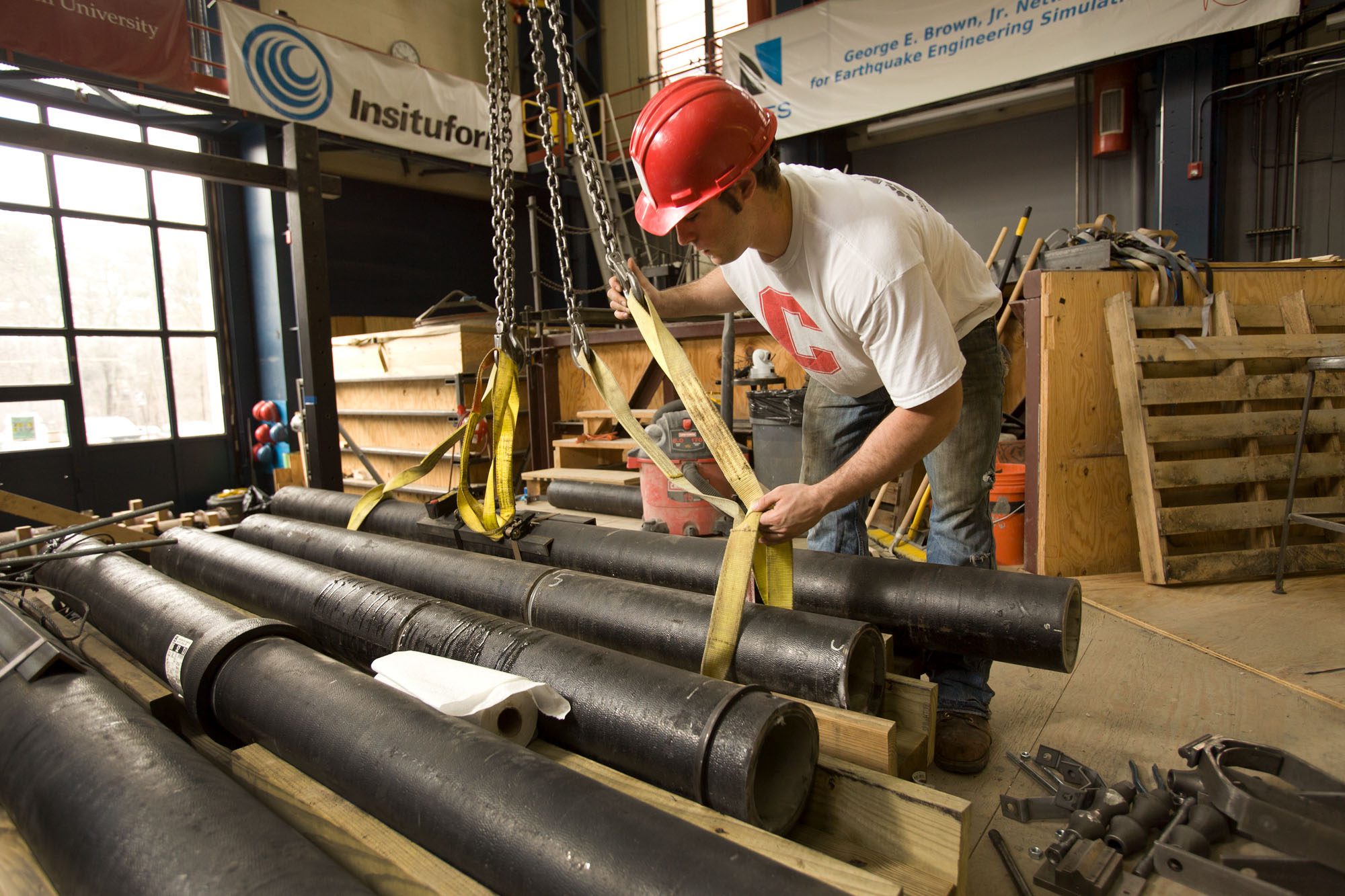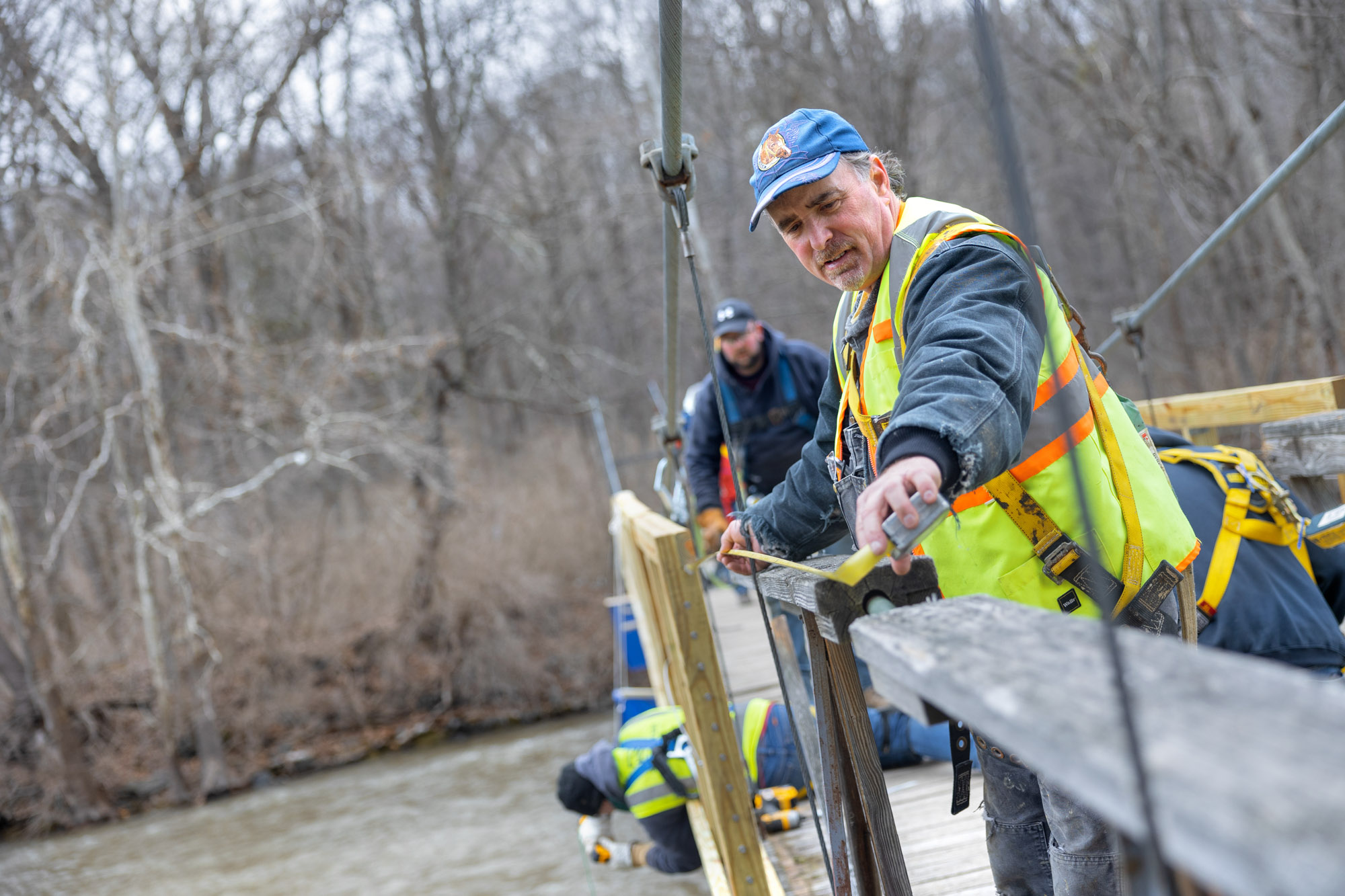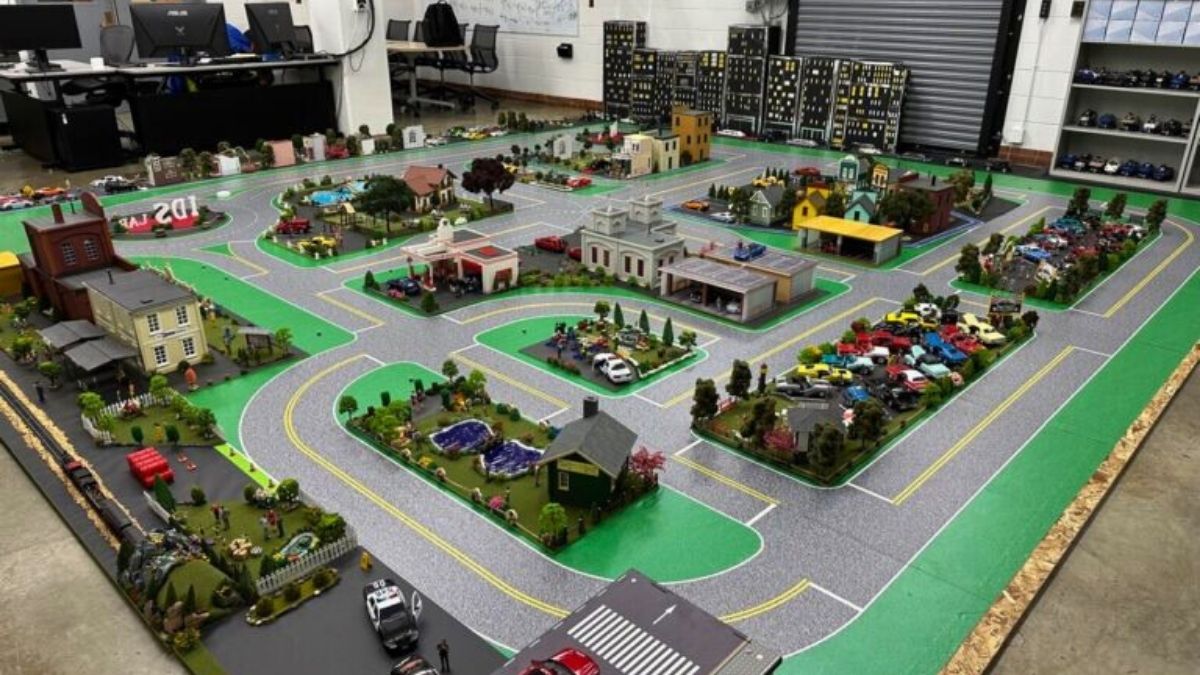Many of our civil engineering graduates go on to take leadership positions in established companies, or start their own. At Cornell, we are educating some of the top engineers in the country, and teaching our students how to use their intellect to participate in the business arena.
Key Details
-
Accredited Bachelor of Science Degree
Graduates earn an accredited Bachelor of Science (B.S.) degree, and the program is accredited by the Engineering Accreditation Commission of ABET.
-
Licensing Exam Eligibility
By receiving a degree from an accredited institution, students are automatically eligible to take Part A of the NYS professional licensing exam.
-
Professional Engineering Exam Credit
Graduates receive eight years of credit towards the twelve years needed to sit for the Professional Engineering Exam, required for registering as a Professional Engineer.
-
Diverse Curriculum
The program includes requirements to take courses outside of engineering. We supports students’ interests in the arts, humanities, social sciences, campus activities, and service opportunities.
Focus Areas
-
![Student wearing hardhat works with straps and chains around large metal pipes]()
Civil Infrastructure
This concentration merges structural form with the mechanics of engineering materials to design and analyze structures using both modern computing and engineering know-how.
Civil infrastructure encompasses the physical components that comprise our cities, transportation networks, and public utilities such as water and electrical distribution systems. Structures range from buildings, bridges, towers, and roads, to tunnels, dams, aqueducts, pipelines, and space stations.
-
![Students and local volunteers renovate the flat rock pedestrian bridge]()
Smart Cities
In this era of small, inexpensive sensors and increasingly “smart” infrastructure systems, civil engineers need to know as much about Big Data and algorithms as they do about concrete and steel.
Civil engineers are still the ones who design much of the infrastructure cities rely on to function smoothly. But to build the Smart Cities of the future, in addition to their engineering skills they will also need knowledge of the environment, climate change, technology, sensors, and data science.
-
![Damian Helbling and student watch water with micropollutants drip into a beaker in a lab]()
Fluid Mechanics/ Hydrology/Water Resources Infrastructure
Prepare for a diverse set of careers that range from:
- Engineering consulting for companies that focus on rivers, the coasts, the oceans, the atmospheric boundary layer, surface/subsurface groundwater, reservoir management, the rural and urban built environments as they relate to flood protection and prevention, drainage, water supply, climate change and resiliency, urban design and planning and energy
- Working for government agencies such as the USGS, the EPA, and state and local agencies with similar mandates
- Graduate school problems in this field or law or business with a focus on shepherding the environment.
-
![Scaled Smart City in Andreas Malikopoulos' Information and Decision Science Lab.]()
Transportation
The transportation concentration is all about analyzing and designing solutions for our transportation systems, including urban, long-distance, and international levels while seeking to lower cost, reduce harm to the environment, and improve livability of communities.
Many new technologies and services are emerging, from the electrification of cars and trucks to self-driving vehicles, all happening in wirelessly connected smart cities. A transportation engineer can work in the public or private sector, incorporating these new innovations into solutions for roads and infrastructure, public transportation, freight transportation and logistics, and many other complex applications.
-
![Distance learning students sitting around tables working on their laptops during their residential experience]()
-
Engineering Management Minor
Students in the program can earn a minor in Engineering Management. The coursework required for the minor aligns well with other required courses in the major, and will prepare students for leadership and management positions upon graduation.
How to Affiliate
All admitted Cornell Engineering students start without a declared major to explore options. They take core math and science courses, engineering distribution courses, and writing seminars before choosing a major in their third semester (fall of sophomore year).
A number of curriculum requirements are set by Cornell Engineering. These include Approved Electives, Technical Communications, and the Liberal Studies Distribution requirement. Not discussed are the additional common college requirements usually taken before affiliation such as mathematics, physics, chemistry, and freshman writing seminars.
-
Affiliation Eligibility Requirements
Full list of requirements for the Civil Engineering Major.
-
Ready to Affiliate?
Students interested in affiliating with civil or environmental engineering should contact the undergraduate program coordinator.
Contact Us
-
Undergraduate Program Coordinator
Nicholas Wagner
Hollister Hall, Room 221
nw346@cornell.edu





